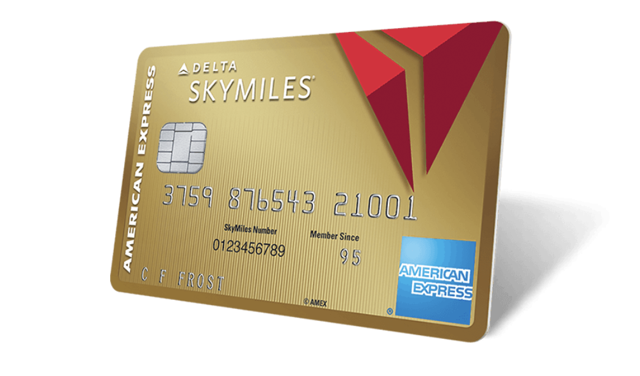Delta Air Lines: Breaking Higher - 5 minutes read
 Delta Air Lines: Breaking Higher - Delta Air Lines, Inc. (NYSE:DAL)
Delta Air Lines: Breaking Higher - Delta Air Lines, Inc. (NYSE:DAL)After about 18 months since first reaching $60, Delta Air Lines (DAL) is finally breaking to new all-time highs. The airline sector has long been poised for a rally to new valuation multiple levels more consistent with other transport stocks so this initial new high should only be the start.
Delta first approached $60 going back to January 2018. On Friday, the stock hit a new high of $62.24 and had its highest close at $61.65. The general indication is that the stock is breaking out to new highs, but the key is a follow through rally next year.
The amazing part of the investment story is that analysts continue to expect a solid trend of earnings growth. Like any industry, the airlines have had some ups and downs lately due to volatile oil prices and capacity growth, but the end result is still an industry where profits are forecast to flow higher.
The only thing holding back the stock of Delta Air Lines is the fears that the airline industry will revert back to the one of old when the next recession starts. Despite reporting years of profits, the stock still trades like massive losses are just around the corner while one analyst forecast a 2023 EPS of $10.
The recent Q2'19 results reinforce this concept. Delta reported a non-GAAP EPS of $2.35 for a $0.07 beat.
So in an economy where the market wants the Fed to cut interest rates, Delta reported revenue growth of 9% to reach $12.5 billion and an EPS that surged an incredible 32% from last Q2. The airline even raised 2019 guidance by $0.25 at the midpoint.
One of the underpinnings of the growth story through 2023 isn't even related to travel. The airline is set to see a huge benefit from the co-branded credit card with American Express (AXP). The Delta credit card is more tied to consumer spending than actual travel on the airline. The benefit is forecast to surge from $4.0 billion this year to nearly $7.0 billion by 2023.
The fact that Delta Air Lines only trades at 8.2x forward EPS estimates is a near travesty, but the whole airline sector trades at similarly low multiples. Of the four major airlines, Southwest Airlines (LUV) continues to trade at the highest multiple despite the Boeing (BA) 787 Max issue while both American Airlines (AAL) and United Airlines (UAL) trade at much lower valuation multiples than Delta.
The part that isn't understandable is how this sector has generally performed better from a growth perspective in the last few years, yet the stock market still favors other transport stocks. Both Union Pacific (UNP) and United Parcel Service (UPS) trade at a forward P/E multiple far in excess of Delta or any of the other airline stocks.
The amazing part is that neither has the growth profile of Delta either. Both Union Pacific in the railroad sector and United Parcel Service in the package delivery business will be lucky to generate any revenue growth, much less match the 8% of Delta or the 5% of United Airlines.
If Delta only traded at the 13.1x P/E multiple of UPS for 2020, the stock would soar to nearly $100 based on a current EPS estimate of $7.48.
The key investor takeaway is that Delta Air Lines is poised for a major breakout following strong Q2'19 earnings. Whether or not it occurs in 2019 or later, the stock is due for massive multiple expansion as earnings continue to rise and the airlines stocks trade at transport sector lows.
Disclosure: I am/we are long AAL, UAL. I wrote this article myself, and it expresses my own opinions. I am not receiving compensation for it (other than from Seeking Alpha). I have no business relationship with any company whose stock is mentioned in this article.
Additional disclosure: The information contained herein is for informational purposes only. Nothing in this article should be taken as a solicitation to purchase or sell securities. Before buying or selling any stock you should do your own research and reach your own conclusion or consult a financial advisor. Investing includes risks, including loss of principal.
Source: Seekingalpha.com
Powered by NewsAPI.org
Keywords:
Delta Air Lines • New York Stock Exchange • Delta Air Lines • Airline • Industry • Essential oil • Economic growth • Industry • Profit (accounting) • Delta Air Lines • Recession • Stock • Earnings per share • Accounting standard • Earnings per share • Economy • Market (economics) • Federal Reserve System • Interest rate • Revenue • Economic growth • Earnings per share • Airline • Airline • Credit card • American Express • Credit card • Consumer spending • Airline • Delta Air Lines • Southwest Airlines • Luv' (Dutch band) • Boeing • Bachelor's degree • American Airlines • United Airlines • United Airlines • Value (ethics) • Economic growth • Stock market • Transport • Stock • Union Pacific Railroad • United National Party • United Parcel Service • Airline • Stock • Union Pacific Railroad • Rail transport • United Parcel Service • Package delivery • Revenue • United Airlines • UPS Airlines • Stock • Earnings per share • S7 Airlines • Investor • Delta Air Lines • Income • Stock • Income • Stock • Trade • Transport • Corporation • United Airlines • Seeking Alpha • Company • Stock • Corporation • Information • Solicitation • Security (finance) • Stock • Research • Financial adviser • Investment • Risk • Income statement • Bond (finance) •